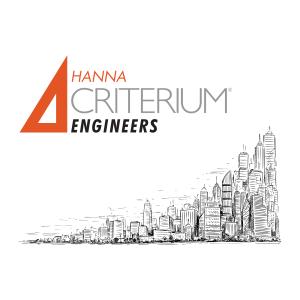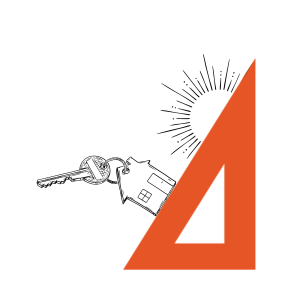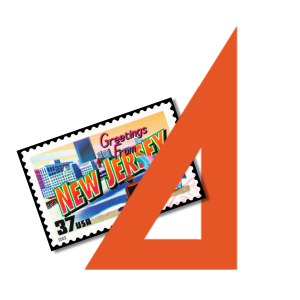Homeowners Association Reserve Study: Why It’s Essential for Your NJ Community
A Homeowners Association (HOA) Reserve Study is a critical financial planning tool that ensures the long-term sustainability of an HOA-managed community. This study helps determine how much money should be set aside in a reserve fund to cover the repair and replacement of major common area components, such as roofs, roads, pools, and other infrastructure.
What is a HOA Reserve Study?
A reserve study is a professional assessment that provides an in-depth analysis of an HOA’s financial health in relation to future capital expenses. It consists of two main components:
- Physical Analysis – Evaluates the condition and life expectancy of common area assets, estimating the costs of repair or replacement.
- Financial Analysis – Reviews the HOA’s current reserve fund and recommends a funding plan to maintain adequate reserves for anticipated future expenses.

Why is a Reserve Study Important in New Jersey?
1. Financial Stability
An adequately funded reserve account ensures that the HOA can meet its financial obligations without resorting to emergency assessments or significant fee increases.
2. Compliance with Legal Requirements
Many states, including New Jersey, require HOAs to conduct reserve studies periodically and maintain adequate reserve funding.
3. Property Value Protection
A well-funded reserve account helps maintain the community’s infrastructure, which in turn preserves property values and prevents deferred maintenance issues.
4. Equitable Cost Distribution
Reserve studies ensure that all homeowners contribute fairly to future repairs rather than facing unexpected special assessments.
How Often Should a HOA Conduct a Reserve Study?
The frequency of reserve studies depends on state laws and the HOA’s governing documents. However, industry best practices recommend:
- A full reserve study every 3-5 years
- Annual updates to keep financial projections accurate
What Happens If a HOA Doesn’t Have a Reserve Study?

Without a reserve study, an HOA risks financial shortfalls, deferred maintenance, and potential legal liabilities. Homeowners may face unexpected special assessments or declining property values due to poorly maintained common areas. A homeowners association reserve study is about reducing risk, cost, and potential liabilities.
Criterium-Hanna Engineers: Your Trusted Reserve Study Partner
Criterium-Hanna Engineers specializes in providing comprehensive Reserve Studies for Homeowners Associations (HOAs). Their studies ensure that funds are appropriately allocated for future repairs and replacements of common area components.
Key Features of Criterium-Hanna’s Reserve Studies:
- Licensed Professional Engineers: Each study is conducted or reviewed by a licensed Professional Engineer, ensuring accuracy and reliability.
- Local Expertise: Based in Matawan, New Jersey, Criterium-Hanna has in-depth knowledge of local building practices, maintenance costs, and environmental regulations.
- Clear Communication: Criterium-Hanna Engineers attend association meetings to present findings and address questions, fostering transparency and understanding within the community.
- Enhanced Reserve Studies: Criterium-Hanna offers expanded services, including Property Condition Reports, accessibility improvement suggestions, and alternative solutions that focus on upgrading existing components for increased efficiency.
Engaging Criterium-Hanna Engineers for a Reserve Study equips HOAs with a strategic plan to manage assets effectively, maintain property values, and ensure the community’s long-term success.
A Detailed Process Overview: How a Reserve Study Works

A reserve study is a structured process that follows several critical steps to ensure accuracy and effectiveness. Here’s what to expect:
- Initial Consultation & Data Collection
- The HOA provides essential documents, including governing documents, maintenance records, financial statements, and previous reserve studies.
- The reserve study firm schedules an on-site visit.
- On-Site Inspection
- Licensed engineers conduct a comprehensive assessment of common area assets.
- Licensed engineers evaluate structural components such as roofing, paving, HVAC systems, plumbing, and recreational facilities.
- The goal is to determine the current condition, estimated remaining lifespan, and projected replacement costs.
- Financial Analysis & Reserve Fund Review
- The current reserve fund balance is reviewed to determine whether it meets future capital needs.
- Financial projections are made based on anticipated repair and replacement timelines.
- Funding Recommendations & Report Development
- The engineering team compiles findings into a detailed reserve study report.
- The report includes estimated costs, recommended funding strategies, and a schedule for future expenses.
- The HOA is provided with multiple funding models to ensure sustainability without burdening homeowners.
- Presentation & Implementation
- The study findings are presented to the HOA board and community stakeholders.
- Engineers answer questions, clarify funding plans, and suggest best practices for reserve fund management.
- The HOA integrates the recommendations into their long-term financial planning.
- Updates & Ongoing Monitoring
- Best practices recommend updates to the reserve study to account for inflation, unexpected costs, and changes in community needs every 3 years (New Jersey standard).
- Regular updates ensure the HOA remains financially prepared for future obligations.
How to Get Started with a Reserve Study
- Hire a professional reserve study company that specializes in HOA assessments.
- Assess the current reserve fund balance and compare it to projected future expenses.
- Develop a funding plan to ensure reserves remain sufficient over time.
- Regularly update the reserve study to reflect inflation, repair costs, and changes in community needs.
A well-executed HOA Reserve Study is not just a financial safeguard—it’s a proactive approach to community management. By ensuring that reserve funds are properly planned and maintained, HOAs can avoid financial crises, protect homeowners’ investments, and foster a well-maintained, thriving community.

